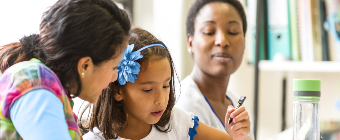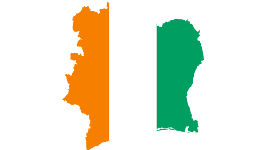As a part of its reform agenda, the Government of the Ivory Coast is planning to expand its electricity generation capacities significantly, with an increase from the current level of just under 2,000 megawatts (MW) to 4,000 MW by 2020. The aim is to restructure the country’s electricity mix, consistently increasing the proportion of renewable energy and improving energy efficiency up to 2030.
There is major economic potential in the areas of renewable energy and energy efficiency, as international climate policy and financing will open up a wide range of opportunities. The costs for solar power are set to continue to fall and a host of energy efficiency measures are already being implemented.
Despite the promising outlook, both areas are still in their infancy. Up to now, only a small number of well-qualified engineers, project planners and installation technicians have been available on the market. Moreover, small companies are lacking in expertise for suitable business models and appropriate financing options.
The project is part of the reform partnership between the Government of Ivory Coast and the German Federal Ministry for Economic Cooperation and Development (BMZ), together with the G20 Compact with Africa initiative. It has various different priority areas and focuses in particular on human resources development, organisational development and network-building. It assists selected individuals working in vocational education in boosting their skills and supports them in passing on task-based skills in the area of renewable energy and energy efficiency.
On behalf of GIZ the IB supports apprentices in electrical engineering at two vocational schools in Jacqueville and Korhogo by raising awareness of renewable energies, especially solar/photovoltaics, and strengthening their personal and professional competencies through life skills and sport for development.




